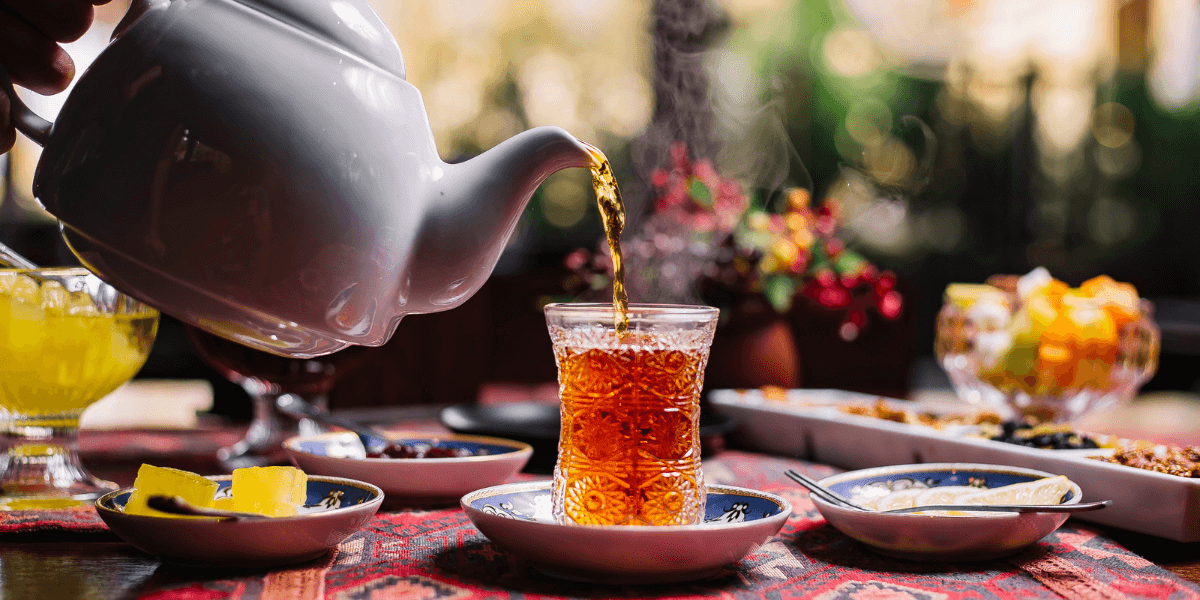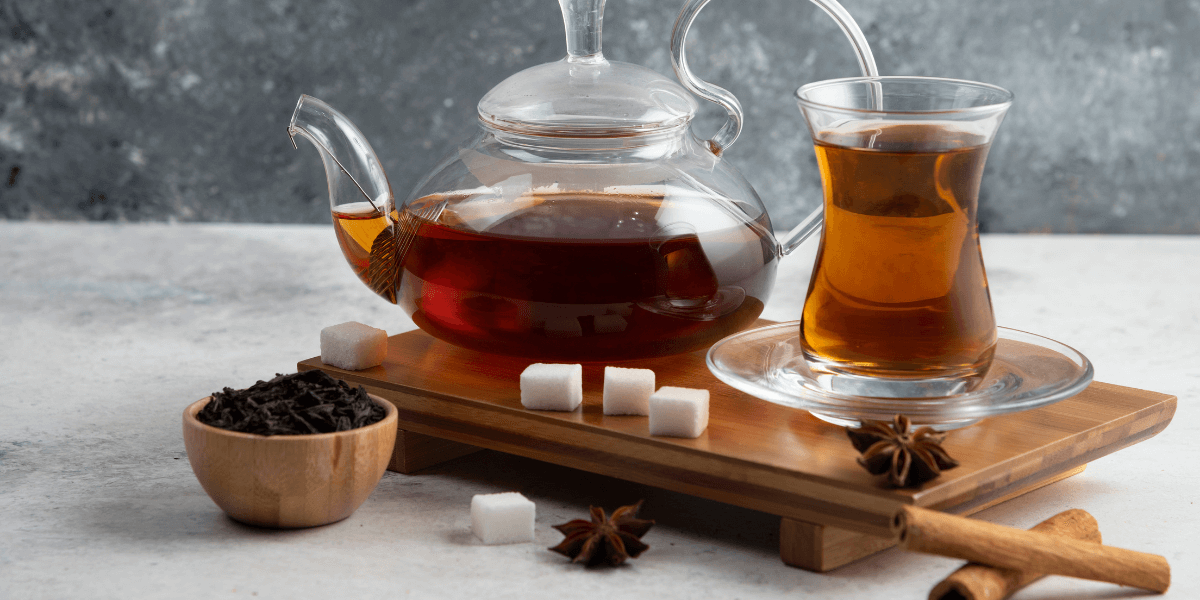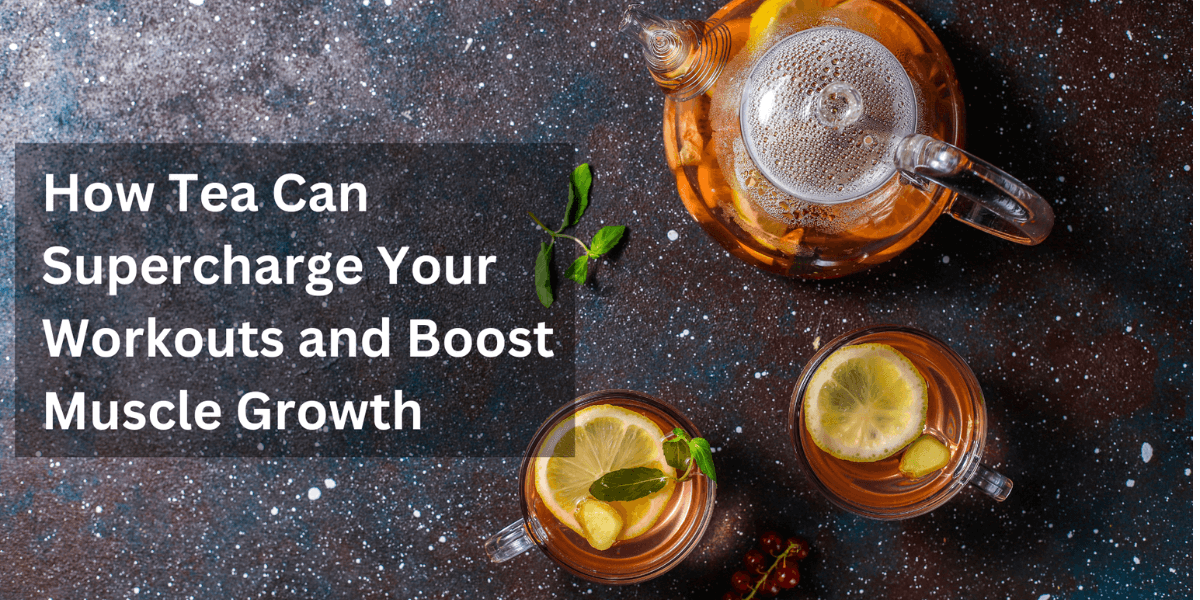Pregnancy and breastfeeding are times when women want to ensure that they are taking the best care of themselves and their babies. One popular way to do this is by drinking herbal teas. Herbal teas are a natural and soothing option that can offer a range of benefits during pregnancy and breastfeeding, including easing morning sickness, providing hydration, and increasing milk production. However, not all herbal teas are safe for pregnant and nursing women. It's essential to understand which herbal teas are safe and beneficial and which ones to avoid or consume in moderation. In this article, we will discuss the best herbal teas for pregnant and nursing women, their benefits, potential risks, and how to consume them safely.
Introduction to Herbal Teas During Pregnancy and Breastfeeding
Herbal teas have been used for centuries for medicinal purposes. During pregnancy and breastfeeding, women often turn to herbal teas as a natural way to alleviate discomforts and promote their and their baby's health. However, not all herbal teas are safe during pregnancy and breastfeeding. It's important to know which teas are safe and beneficial, which ones to avoid, and the benefits of herbal teas for nursing mothers.
What are Herbal Teas?
Herbal teas are beverages made from steeping herbs, flowers, or other plant parts in hot water. Unlike true teas, such as black, green, and white teas, which come from the Camellia sinensis plant, herbal teas don't contain caffeine.
Why are Herbal Teas Popular Among Pregnant and Nursing Women?
Herbal teas are popular among pregnant and nursing women due to their natural and soothing properties. Some herbs, such as ginger and chamomile, have been traditionally used to alleviate nausea, insomnia, and anxiety. Other herbs, such as raspberry leaf, are believed to prepare the uterus for labor and support milk production.
Safe and Beneficial Herbal Teas for Pregnant Women
Not all herbal teas are safe during pregnancy and breastfeeding. Some herbs may cause uterine contractions, premature labor, or harm to the baby. However, many herbal teas are safe and offer health benefits to pregnant women. Here are some of the most popular and recommended:
Ginger Tea
Ginger tea is a popular remedy for morning sickness, nausea, and digestive issues. Ginger has anti-inflammatory and antiemetic properties that can help alleviate nausea and vomiting in pregnant women. It's also believed to have pain-relieving properties and may help with headaches and menstrual cramps.
Peppermint Tea
Peppermint tea is another popular choice for pregnant women. Peppermint has a cooling and soothing effect on the digestive system and can help alleviate bloating, gas, and morning sickness. It also has a refreshing taste and aroma that can help uplift the mood.
Chamomile Tea
Chamomile tea is a gentle and calming herbal tea that can help alleviate anxiety, stress, and insomnia. Chamomile has anti-inflammatory and antispasmodic properties that can help relax the muscles and soothe the nerves. It's also a good source of antioxidants and can help boost the immune system.
Lemon Balm Tea
Lemon balm tea is a mild and uplifting herbal tea that can help alleviate anxiety, depression, and insomnia. Lemon balm has a refreshing citrusy flavor and aroma that can help uplift the mood and improve focus. It's also believed to have antiviral and antibacterial properties that can help prevent infections.
Raspberry Leaf Tea
Raspberry leaf tea is a traditional herbal tea that's believed to support uterine health and preparation for labor. Raspberry leaf has astringent properties that can help tone the uterine muscles and prevent excessive bleeding during and after labor. It's also a good source of vitamins and minerals, such as iron, calcium, and magnesium.
Herbal Teas to Avoid During Pregnancy and Breastfeeding
Some herbs are known to be unsafe or potentially harmful during pregnancy and breastfeeding. It's important to avoid these herbs or herbal teas to prevent any adverse effects on you and your baby. Here are some herbs to avoid:
Herbs that may cause miscarriage or preterm labor
Herbs such as black cohosh, blue cohosh, pennyroyal, and tansy have been traditionally used to induce labor or menstruation. However, these herbs can also cause uterine contractions, miscarriage, or preterm labor and should be avoided during pregnancy.
Herbs that can decrease milk supply
Some herbs such as sage, peppermint, and parsley are believed to decrease milk supply in nursing mothers. While more research is needed to confirm this effect, it's recommended to avoid or limit these herbs if you're breastfeeding.
Herbs that can be harmful to the baby
Some herbs such as comfrey, licorice root, and ephedra can be harmful to the baby and should be avoided during pregnancy and breastfeeding. These herbs may contain toxic compounds or affect fetal development and should only be used under the guidance of a healthcare provider.
Benefits of Herbal Teas for Nursing Mothers
Herbal teas can offer many benefits to nursing mothers, such as hydration, relaxation, and relief from breastfeeding-related discomforts. Here are some benefits of herbal teas for nursing mothers:
Hydration for Milk Production
Breastfeeding requires extra fluids to support milk production and hydration. Herbal teas can provide a natural and flavorful way to increase fluid intake and support milk supply. Drinking enough fluids can also prevent constipation, fatigue, and headaches.
Relaxation and Stress Relief
Breastfeeding can be a stressful and demanding experience for many mothers. Herbal teas such as chamomile, lavender, and lemon balm can help promote relaxation and ease stress and anxiety. Relaxation can also improve milk letdown and encourage bonding with the baby.
Relief from Breastfeeding-Related Discomforts
Breastfeeding can cause discomforts such as sore nipples, engorgement, and mastitis. Herbal teas such as calendula, chamomile, and comfrey can help alleviate these discomforts and promote healing. Some herbs can also have antibacterial and anti-inflammatory properties that can prevent infections and support tissue repair.Herbal teas to increase milk production during breastfeeding
Breastfeeding can be a beautiful and fulfilling experience for both the mother and child. However, some breastfeeding mothers might experience low milk supply, which can cause stress and frustration. Incorporating herbal teas into your daily routine can help increase milk production naturally. Here are three herbal teas that have been found to increase milk production:
Fenugreek tea
Fenugreek is an herb that has been used for centuries to stimulate milk production. Fenugreek tea is made from the seeds of the fenugreek plant and has a nutty and slightly sweet taste. Drinking fenugreek tea regularly can help increase milk supply. However, it is important to note that fenugreek can cause digestive issues in some individuals, so it is essential to start with a small amount and monitor for any adverse effects.
Nettle tea
Nettle tea is a herbal tea made from the leaves of the stinging nettle plant. It is rich in vitamins and minerals and has been found to increase milk production. Nettle tea has a slightly grassy and earthy flavor and can be consumed hot or cold. Drinking nettle tea regularly can help boost milk supply and improve the quality of breast milk.
Alfalfa tea
Alfalfa is a nutrient-rich herb that has been used for centuries to increase milk production in breastfeeding mothers. Alfalfa tea is made from the leaves and seeds of the alfalfa plant and has a mild and slightly sweet taste. Drinking alfalfa tea regularly can help promote lactation and improve the quality of breast milk.
Precautions and potential risks of drinking herbal teas while pregnant or breastfeeding
While herbal teas can provide many health benefits, it is important to exercise caution when consuming them during pregnancy or breastfeeding. Here are some precautions to take when drinking herbal teas:
Consulting with a healthcare provider before consuming herbal teas
It is essential to consult with a healthcare provider before consuming herbal teas during pregnancy or breastfeeding. Some herbs can cause adverse effects or interact with medication, so it is crucial to check with a healthcare provider to ensure safety.
Ensuring quality and safety of herbal tea products
It is vital to ensure the quality and safety of herbal tea products before consuming them. Purchase herbal teas from reputable and certified manufacturers and avoid teas that contain additives or harmful substances.
Monitoring for adverse effects
It is essential to monitor for any adverse effects when consuming herbal teas. Symptoms such as nausea, vomiting, or diarrhea may indicate an adverse reaction to the herbs. If you experience any adverse effects, stop drinking herbal tea and consult with a healthcare provider.
How to prepare and consume herbal teas safely during pregnancy and breastfeeding
Here are some guidelines to help you prepare and consume herbal teas safely during pregnancy and breastfeeding:
Choosing organic and non-caffeinated teas
Choose organic and non-caffeinated herbal teas to minimize exposure to harmful chemicals and caffeine. Caffeine can cause adverse effects on both the mother and child, so it is essential to avoid teas that contain caffeine.
Preparing herbal teas properly
Follow the instructions on the packaging to prepare herbal teas properly. Steep the herbs for the recommended amount of time and avoid using boiling water that can destroy the nutrients in the herbs.
Limiting consumption and monitoring for adverse effects
Limit the consumption of herbal teas to a moderate amount and monitor for any adverse effects. It is also crucial to avoid consuming herbal teas in place of necessary nutrients and medication prescribed by a healthcare provider.In conclusion, herbal teas can be a healthy and beneficial addition to the diet of pregnant and nursing women. By choosing safe and beneficial herbal teas, women can enjoy their natural benefits while minimizing potential risks. It's essential to consult with a healthcare provider, limit consumption, and monitor for adverse effects. By following these precautions, women can enjoy the soothing and healing properties of herbal teas safely while supporting their health and the health of their baby.
FAQ
Can herbal teas be harmful during pregnancy?
Yes, some herbal teas can be harmful during pregnancy. Certain herbs can cause contractions, increase the risk of miscarriage, or be harmful to the baby. It's essential to avoid herbs such as pennyroyal, licorice root, and ephedra, among others. Always check with your healthcare provider before consuming herbal teas during pregnancy.
Which herbal teas are safe during pregnancy?
Several herbal teas are safe during pregnancy, such as ginger tea, peppermint tea, chamomile tea, lemon balm tea, and raspberry leaf tea. These teas can help alleviate pregnancy symptoms, such as nausea, heartburn, and insomnia, and provide hydration and nutritional benefits.
Can herbal teas increase milk supply?
Yes, certain herbal teas can increase milk supply. Fenugreek tea, nettle tea, and alfalfa tea are known to help increase milk production in nursing mothers. However, it's essential to consume these teas in moderation and monitor for adverse effects.
How much herbal tea should I drink during pregnancy and breastfeeding?
It's best to limit consumption of herbal teas during pregnancy and breastfeeding. Drinking one to two cups of herbal tea per day is generally safe for pregnant and nursing women. However, it's important to monitor for adverse effects and consult with a healthcare provider before consuming herbal teas regularly.





